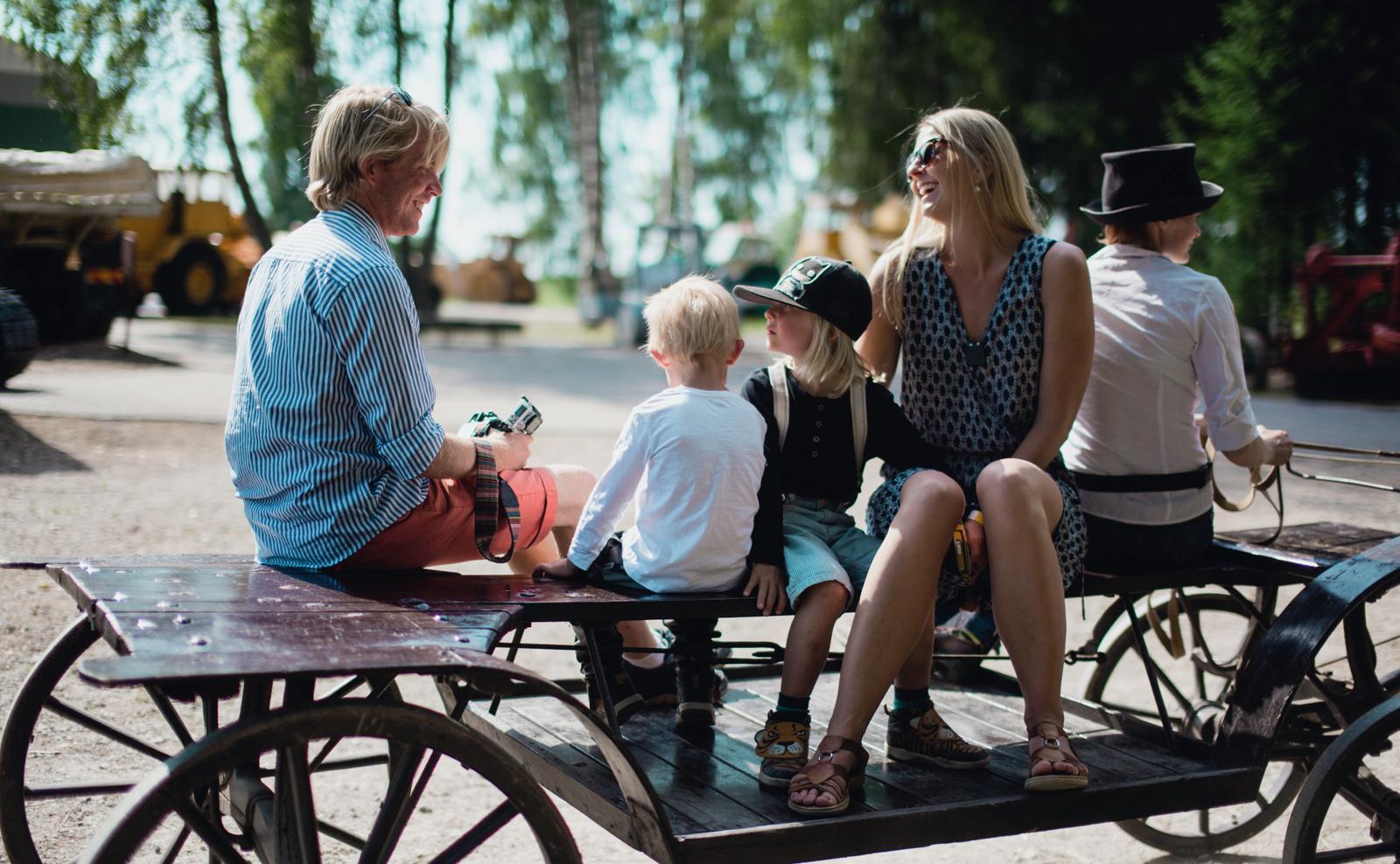
10 minute read
4. Rights, obligations and responsibilities
While in Estonia, you must follow the Estonian Constitution and laws. Not knowing and thus not following the law does not excuse you from violating them. If you violate laws, you will be punished accordingly. You can find all laws of Estonia in Riigi Teataja www.riigiteataja.ee, where some of the laws have also translated into English and/or Russian. In Estonia, legislation has legal force only in Estonian language. As a temporary resident, you have many of the same rights as permanent residents.
According to the Estonian Constitution, everyone residing in Estonia legally has the right to aid when the person is in need: • In old age • In cases of unemployment • In case of emergency In Estonia, no one may be discriminated because of their religion, political views, nationality, race, colour, sex or origin. The incitement of national, racial, religious or political hatred, violence or discrimination is prohibited and punishable in Estonia.
Advertisement
If you have been discriminated in the public space, based on your nationality, race, colour, sex or origin, you can turn to the police.
In cases of discrimination, you can turn to gender equality and equal treatment representative, who monitors the performance of the requirements in the law. Information can be found at www.volinik.ee.
You can also report the incident to Estonian Human Rights Centre. In Estonia, everyone can enjoy the right to:




• Life, and no one may be arbitrarily deprived of their right
• Liberty and to the security of their person
• Free self-realization, choose own area of work and be engaged in any kind of legal business
• Freedom of speech and expression, including clothing
• Choose their partner - no one can force anyone to marry somebody they don't want to marry
You can exercise your freedom(s) and right(s) as long as you are not violating the rights of others. This applies to the streets, home, and to the social media. Depending on your status, there might be some additional rights you can enjoy and/or obligations you must follow.
As a beneficiary of international protection, in addition to following the Constitution and laws, you have additional obligations to: • Participate in language courses • Attend the international protection module of the Settle in Estonia
Programme • Use the services of support person when appointed to you. In addition to the obligatory international protection module of the Settle in Estonia Programme, you have the right to attend the other thematic modules of the Programme. Please note that the other modules are offered only in English and Russian. You can find more information on www.settleinestonia.ee.
i
Rights and obligations of all men and women
In Estonia women and men are equal in front of the law: • In Estonia, men and women are equal in society and have equal rights and obligations. • Like in many other countries, men and women are equal before the law in Estonia. • Men and women have equal rights to education, work, acquire and sell property, obtain health care, open bank accounts, manage their money, travel There are no jobs in Estonia that are meant only for men or only for women. • Men and women can choose their partners and have a say in marriage and divorce • Men and women can equally choose whether they want to have children or not.
4.1. SOLVING LEGAL QUESTIONS
Everyone has the right to stand up for their rights and freedoms, and in case these are violated, to turn to courts. Note that in Estonia the judiciary is independent, and nobody is allowed to influence the decision making of the judges; the judgements are based on existing legislations.
Those who have committed crime, which is proved, will be punished accordingly to the court of law. If you get convicted for crimes, you will most probably lose your right to stay in Estonia and in Schengen. In case you cannot afford a lawyer, but are in need for legal advice, you can try to seek for free of charge state legal advice from www.kohus.ee/et/ oigusabi/tasuta-oigusabi.
i
Here are some service providers who you can consult you for free: • Inimõiguste keskus (Estonian Human Rights Centre) – legal counselling and provision of legal information about Estonian asylum procedures, rights of asylum seekers, rights and obligations of people under international protection, application for free state legal aid, and representation in the Police and Border Guard Board or courts if necessary. www.humanrights.ee; info@humanrights.ee; tel: +372 644 5148 • Eesti Õigusbüroo OÜ – provides free legal advice if your income is less than 1700 EUR. Provides consultation on daily legal matters, e.g. household contracts, work contracts, loans/debts etc. www.juristaitab.ee; abi@juristaitab.ee; tel +372 6 880 400. • Õigusteenuste Büroo AS – provides legal advice to people with special needs (disabilities), people in Tallinn, Valga, Jõhvi, Narva and Pärnu, whose net income per family member is less than 516,45 €/month, and people sent by Tallinn Crisis Centre for
Women. www.otb.ee; otb@otb.ee; tel +372 5385 0005 • Eesti Juristide Liit “Õigusapteek” (“Legal pharmacy”) – provides legal advice to everyone on certain dates and locations. Service in
Estonian and Russian guaranteed. More info about locations and dates: www.juristideliit.ee/info-ja-uritused/oigusapteek. • Tartu University Student Law Office – provides legal advice for everyone. The advisors are last year Bachelor and Master students.
In order to get advised, you need to register at juuraabi@ut.ee.
Service in Estonian and Russian. More information: www.oigus.ut.ee/et/teaduskonnast/uliopilaste-oigusburoo.
The free of charge services are offered in Estonian, Russian and English language.
As a beneficiary of international protection, you have the right for needsbased support person service. The service is provided in the local municipality where you live. The aim of the support person service is to help you to become more independent in Estonia. Support person will not do things for you but will guide you so that you would learn how to carry out daily activities in Estonia by yourself. Remember that the responsibility for your daily life and coping is always yours. Support person can: • explain to you the most important things about Estonian society and your rights and obligations; • guide you concerning concrete daily activity, for example opening bank account, using public transport etc; • Support you in your job search: • help networking and interacting with various agencies (state institutions, local government, educational institutions, and hospitals), but also the landlord of your flat; • help to organise translation service;
Support person will sign a contract with you. In addition, an action plan is created by you, support person and a representative of the local municipality where you live (also other parties if needed). The action plan sets the goals and activities for you and establishes the rights and responsibilities of all sides of the agreement. The action plan focuses on goals like finding work, learning Estonian language, going to school and other issues relevant for you. For the first months the service is more frequent and becomes less frequent as you are becoming more independent.
i
The support person service is offered by:
NGO Estonian Refugee Council Web: www.pagulasabi.ee E-mail: info@pagulasabi.ee
NGO Estonian Refugee Council also organizes various group activities like events, workshops and excursions. For example, there is a women’s club, which supports refugee women’s self-reliance and independence.
4.3. TRANSLATION SERVICES
According to the law, people who have been granted international protection can use state covered translation services for up to two years. Note that the state coverage has certain money limitations, therefore it’s necessary to assess the purposes you use the support for. For example, if you speak good English or Russian, you most probably do not need a translator. Contact NGO Estonian Refugee Council to get more information on the translation support.
4.4. FAMILY REUNIFICATION
If you have been granted international protection, you have the right to apply for family reunification of the family members that have been left behind. Following family members can be reunited with you: • your spouse who you have been officially married to prior to your arrival in Estonia
• your and your spouse’s single, underage children. Descent must be proved, and if necessary, the Police and Border Guard Board will obtain an expertise on DNA analysis • your parent(s) in case they are dependent solely on you for their subsistence. Their need for subsistence support must be proved.
You are considered as a family if your family already existed in your country of origin.
If you wish to reunite your family: • Contact the nearest office of the Police and Border Guard Board
• Present all the relevant information you have about your family ties. If possible present official documents (marriage contract, birth certificates of your children, etc) and other written evidence as it makes the process faster.
If your application for family reunification is approved by the Police and Border Guard Board, your family member(s), who have remained behind in the other country must: • Contact the nearest embassy or consulate of the Estonian Republic or the embassy or consulate of a state representing Estonia and • Apply for a travel document for entry into Estonia. In most cases this is a visa for Estonia, which will be entered into an existing international travel document or passport.
You can find the contact information for Estonian embassies and consulates abroad on the webpage vm.ee/en/embassies-and-representations. Once your family members arrive in Estonia via family reunification procedure, they need to apply for international protection and residence permit. Note that in case of family member’s residence permit, the duration of the permit is the same as the duration of your residence permit. You can contact international protection advisors or migration advisors.
When your family members arrive in Estonia, they must follow the local laws. Note that should they fail to do so you as the person who applied for reunification might also be held responsible.
Family must cover expenses related to the family reunification. You can also receive some assistance from NGOs such as Estonian Refugee Council (www.pagulasabi.ee); Estonian Human Rights Centre (www.humanrights.ee). They can help you with paperwork and advice, in exceptional cases, also fundraising. Also you have the possibility to consult with the UNHCR office in Sweden (www.unhcr.org/sweden.html) If you have lost contact with your family and believe them to be currently located in a refugee camp, contact the Estonian Red Cross (www.redcross.ee). They can help you find your family.

4.5. BECOMING AN ACTIVE MEMBER OF THE SOCIETY
Estonia is your new home; for better feel of belonging and faster integration you could actively participate in the society and contribute into Estonian society. Networks with others can bring you more opportunities – be it for learning language, finding better employment outlooks etc. Options to be actively engaged in Estonian society: • Engaging in civil society organization. These engagements are mostly unpaid but helps you to network and better understand the local life and voice your concerns/needs for improvement (e.g. in the field of integration).
In order to participate in a civil society organization, find an organization that works with a cause that is important to you and contact them. Some of such active organizations you can find on www.heakodanik.ee/liikmed. • Joining neighbourhood activities. This would help you feel home quicker and get to know your neighbours and them to know you. Reach out to neighbours, introduce yourself and your family; search for information on on-going activities and events in neighbourhood. The neighbourhood can help you, and you can help them. In order to find your neighbourhood online-communities, try to search the name of your area on Facebook – for example, there are Facebook groups for people in Nõmme, Kalamaja,
Lasnamäe and some other areas. You can also connect with other people in your city on Facebook – check out groups like Expats in Tallinn,
Foreigners in Tartu, Moms of Tallinn, Families with kids in Tartu, Tallinn
Board and Card Games, Book Club Tartu, etc and/or go to local library and see if there are any activities you could join. • Find ways to volunteer. You can volunteer short-term – for example on one weekend to help with an event – or long-term. You can find interesting offers on www.vabatahtlikud.ee.
Participate in culture programme Kultuurisamm. See more: www.kultuurisamm.ee
i
Põhiseadus Õigusabi Seadus
Constitution Legal aid Law Kohus Court Mittetulundusühing (MTÜ) Civil society organization (CSO) Naabruskond Neighborhood Advokaat Lawyer Kohtunik Judge
NOTES







